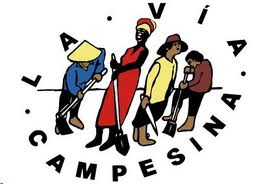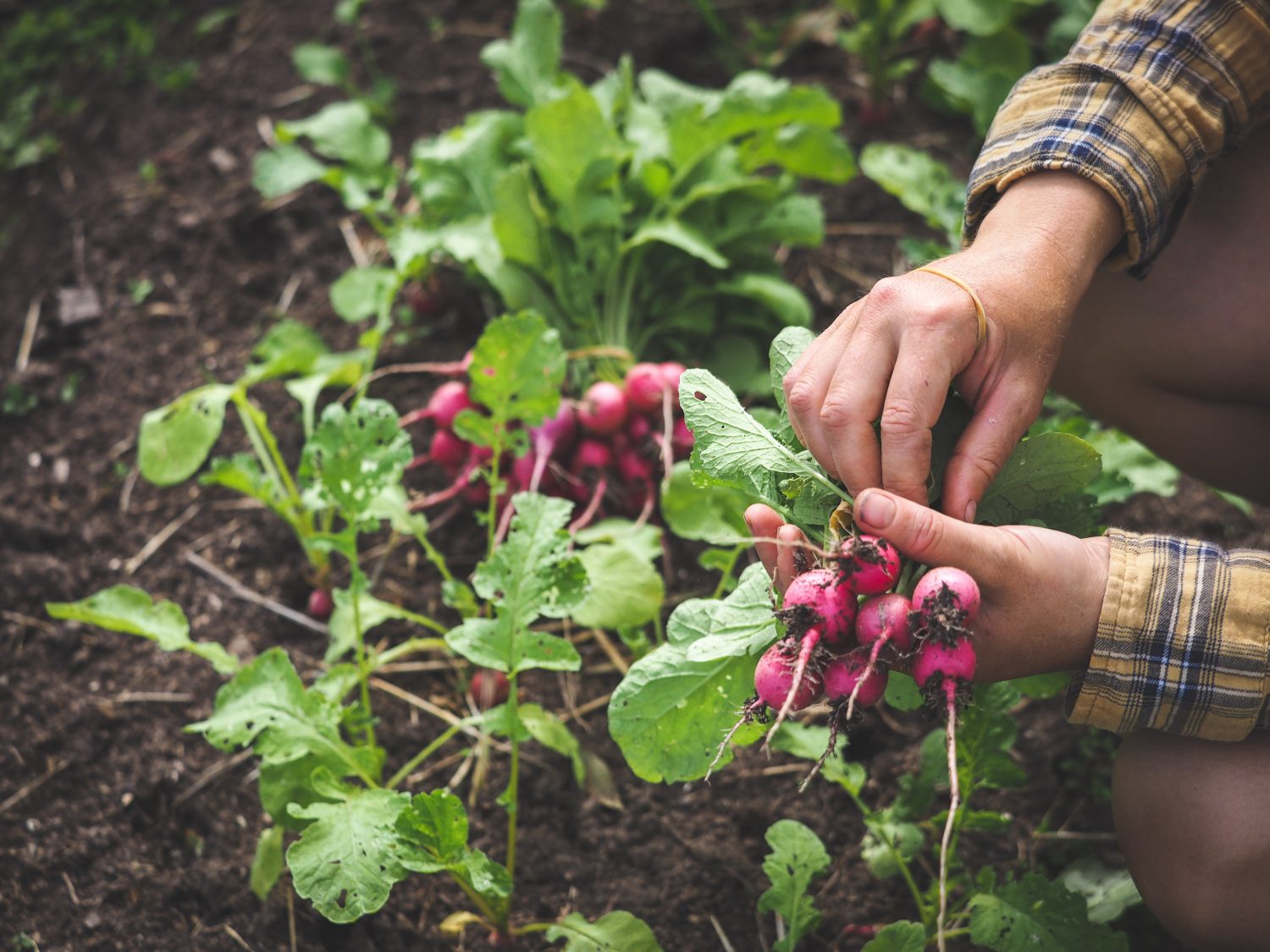About AFSA
The Australian Food Sovereignty Alliance (AFSA) is a farmer-led civil society organisation of people working together towards socially-just and ecologically-sound food and agriculture systems that foster the democratic participation of Indigenous Peoples, smallholders, and local communities in decision making processes.
AFSA Values & Theory of Change
We uphold the 7 Pillars of Food Sovereignty:
Food for people
Builds knowledge and skills
Works with nature
Values food providers
Localises food systems
Puts control locally
Food is sacred
We value our relationships with Land, water, and sky, and strive to care for Country and promote First Peoples’ sovereignty in everything we do. We value biodiversity, and support agroecological food production that protects Land, people, and the more-than-human world.
We listen to First Peoples at every opportunity and promote their rights to voice, treaty, and truth as expressed in the Uluru Statement from the Heart. We are embracing custodial ethics, locating our practices, and expressing solidarities with Traditional Custodians on all food sovereignty issues.
We support the movement away from the corporate-controlled, exploitative capitalist food system, which is shaped by unequal systems of power and oppression, and produces commodities for profit instead of food for people. Our solutions must dismantle systemic food injustices rooted in colonialism.
We value all parts of nature over profits. We acknowledge and respect everyone’s work in the food system, including unpaid, underpaid, and devalued labour. We work to honour culture and conviviality, and to protect and restore food literacy and traditional, non-industrial ways of growing, preparing, sharing, and eating food as a community.
We prioritise community, collaboration, mutual aid, horizontal knowledge exchanges, and equality, seeing them as necessary for and complimentary to individual autonomy. We reject any ideology that promotes individual rights over human rights.
We are concerned about the way the state tries to simplify things that are inherently complex such as agro-ecosystems, food economies, public health, water rights and food security through narrow policy and legislation, but we are not ‘anti-government’.
We seek to localise decision making, replacing the state where possible with smaller-scale, democratic collectives that organically emerge, such as citizens’ assemblies that allow direct democratic participation in decision making in local communities, and farmers’ and workers’ cooperatives to regain control of the means of production, distribution, and communication.
We are an anti-capitalist, anti-colonialist, pro-collectivist organisation working to build solidarity across movements working for food sovereignty, food security, climate action, workers’ rights, and against extractive industries. We embrace degrowth as a politics and a practice. Our members embrace a broad spectrum of political ideologies, but as an Alliance, we do not identify with singular labels – we are a pluralist movement.
We are reformists AND radicals, focusing on practical alternatives (e.g. community-supported agriculture, agroecological farming, community food initiatives, food hubs) as a way to create ecologically-sound and socially-just food and agriculture systems. We connect these actions with a social movement approach, integrating the goal of destroying the power structures of capitalism. Without this radical transformation, practical actions are at risk of co-optation by neoliberalism.
FOOD SOVEREIGNTY asserts the right of peoples to nourishing and culturally appropriate food produced and distributed in ecologically sound and ethical ways, and their right to collectively determine their own food and agriculture systems.
The Australian Food Sovereignty Alliance is a not-for-profit association, incorporated in Victoria.
AFSA’s programs of work include legal advice for smallholders, working with all levels of government for legal reform to enable an agroecological transition in Australia, supporting young farmers for land access and tenure, promoting agroecology as a practice, a science, and movement, and promoting First Peoples’ sovereignty and struggle for voice, treaty and truth. AFSA supports localised food economies that put control locally, valuing producers who work with nature to produce food for people, not profits.
We are part of a robust global network of civil society organisations involved in food sovereignty and food security policy development and advocacy. We are members of the International Planning Committee for Food Sovereignty (IPC), and La Via Campesina – the global movement of peasant farmers, which gives us a regional seat at many meetings of the United Nations, including the Food & Agriculture Organisation and many of its governing bodies.
AFSA is also a member of Urgenci: the International Network for Community-Supported Agriculture, and we also work with Slow Food International and its Australian chapters. We also support the Australasian representative on the Civil Society Mechanism (CSM), which articulates to the Committee on World Food Security (CFS).
Our vision is to enable agroecological and regenerative farms to thrive. Australians care now more than ever about the way their food is produced, including its social and environmental impacts. Food produced on small-scale farms is increasingly in demand, and government is bound to heed changing community expectations and facilitate and encourage the growth and viability of agroecology and regenerative agriculture, thereby protecting the environment and human and animal health.
Legal Defence Fund
In 2016 AFSA formally constituted the Legal Defence Fund in response to the number of small-scale producers across Australia seeking assistance in dealing with inappropriate-to-scale regulations and planning schemes.
The Legal Defence Fund:
- provides legal advice for farmers and eaters so that nobody is left to fight alone;
- compiles and analyses casework to lobby for legal reform where necessary to support the growing food sovereignty movement;
- develops factsheets and templates for food producers and local councils around regulatory requirements and best-practice planning; and
- provides support when small farms are caught up in a trial by media.
Governance
AFSA is governed by a National Committee made up of farmers and allies who are elected at our Annual General Meeting each year at the end of the Food Sovereignty Convergence, where we form our mandate by listening to the needs of members and collectively prioritise the work for the year ahead.
We are a not-for-profit incorporated association with ties to no political party.
Our constitution requires that:
- our president is a farmer who is actively farming,
- there are a minimum of four farmers on our National Committee,
- decisions that have a material impact on farmers are made by farmers, and
- our events are run democratically, with a preference for ‘unconference’ style gatherings that privilege all voices present rather than a select few.
The objects of AFSA are to:
- work towards global food sovereignty, asserting the right of peoples to nourishing and culturally-appropriate food produced and distributed in ecologically sound and ethical ways, and their right to collectively determine their own food and agriculture systems;
- research, publish, and disseminate information regarding food sovereignty, and campaign and lobby for food sovereignty;
- promote transparency in all aspects of the food system, including but not limited to production, processing, and distribution;
- support, enable, and promote the efforts of agroecological farmers by:
-
- connecting them for farmer-to-farmer knowledge sharing;
- advocating for scale-appropriate regulations and standards as they relate to food and agriculture systems;
- supporting them in their work to control the means of production;
- connecting them with eaters;
- advocating for fair pricing for those selling domestically; and
- providing a voice for farmers globally who are especially vulnerable to the impacts of free trade;
- facilitate, promote, and enable the education and activities of members, affiliates, and allies;
- maintain membership with La Via Campesina and other farmer-led international food sovereignty organisations;
- build and maintain productive relationships with other local and international organisations working for food sovereignty; and
- operate as a not-for-profit entity.
Read articles about AFSA’s governance
Join our team: AFSA National Committee We are seeking nominations ...
President’s Report Financial Report Membership Report Legal Defence Fund Farming ...
The Annual General Meeting of the Australian Food Sovereignty Alliance ...
A panel of food systems advocates, including Costa Georgiadis (Gardening ...
Do you want to help drive the fight for food ...
The Issue Producers in several regions have seen the closure ...





